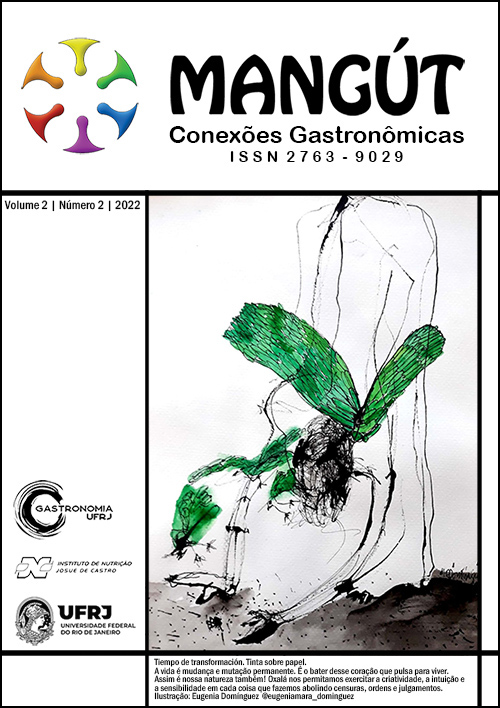Pathways to professional training in gastronomy: the pioneering bachelor degree course of the Federal Rural University of Pernambuco (UFRPE)
DOI:
https://doi.org/10.70051/mangt.v2i2.54926Keywords:
Gastronomy, Higher Education, Bachelor in Gastronomy, Professional performance, Gastronomic science.Abstract
Created in Brazil in the mid-2000s, the innovative Bachelor course in Gastronomy offered by the Federal Rural University of Pernambuco (UFRPE) emerged to supply social demand of professionals who not only dominated production techniques, but also understood food in a social, anthropological, geographical and political way. The aim of this narrative was to record movements that preceded the development of the UFRPE course, from its conceptualization to the winding paths of its first years of operation in a Public Higher Education Institution. Besides, to discuss offering of courses in modalities of technologist and bachelor’s degree and discuss challenges of training and professional performance in face of little official regulation, both for higher and technical education, and for professional practice. From an interview given by the professors who conceived the pioneering course, it was possible to learn about the extension project that founded idea of opening the first bachelor’s degree in Gastronomy in Brazil, at the UFRPE, in the city of Recife, capital of the State of Pernambuco.
Downloads
Published
Issue
Section
License
Copyright (c) 2023 Antonio Gomes de Castro Neto, Arthur Victor da Silva, Neide Kazue Sakugawa Shinohara

This work is licensed under a Creative Commons Attribution 4.0 International License.
Autores que publicam nesta revista concordam com os seguintes termos:
- Autores mantém os direitos autorais e concedem à revista o direito de primeira publicação, com o trabalho simultaneamente licenciado sob a Licença Creative Commons Attribution que permite o compartilhamento do trabalho com reconhecimento da autoria e publicação inicial nesta revista.
- Autores têm autorização para assumir contratos adicionais separadamente, para distribuição não-exclusiva da versão do trabalho publicada nesta revista (ex.: publicar em repositório institucional ou como capítulo de livro), com reconhecimento de autoria e publicação inicial nesta revista.
- Autores têm permissão e são estimulados a publicar e distribuir seu trabalho online (ex.: em repositórios institucionais ou na sua página pessoal) a qualquer ponto antes ou durante o processo editorial, já que isso pode gerar alterações produtivas, bem como aumentar o impacto e a citação do trabalho publicado (Veja O Efeito do Acesso Livre).



